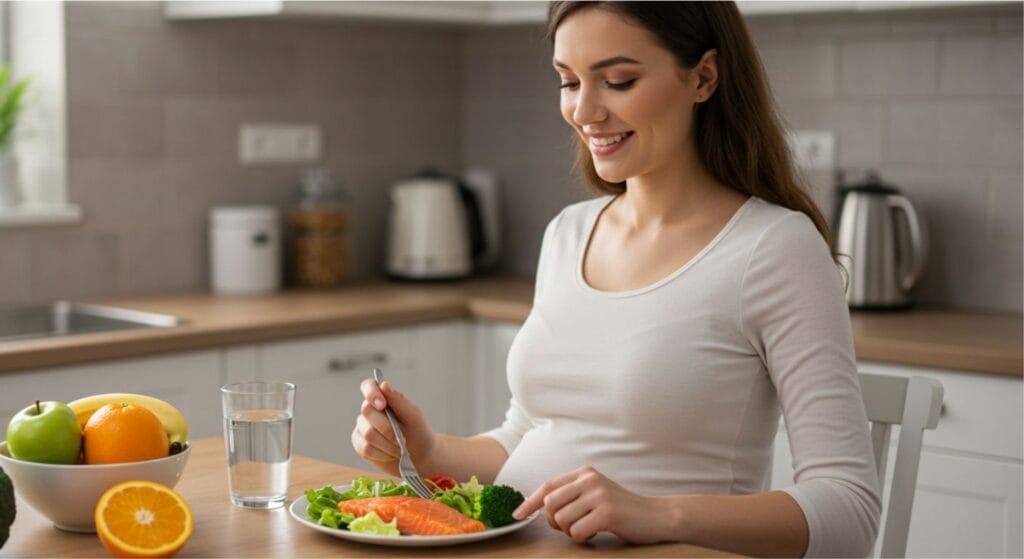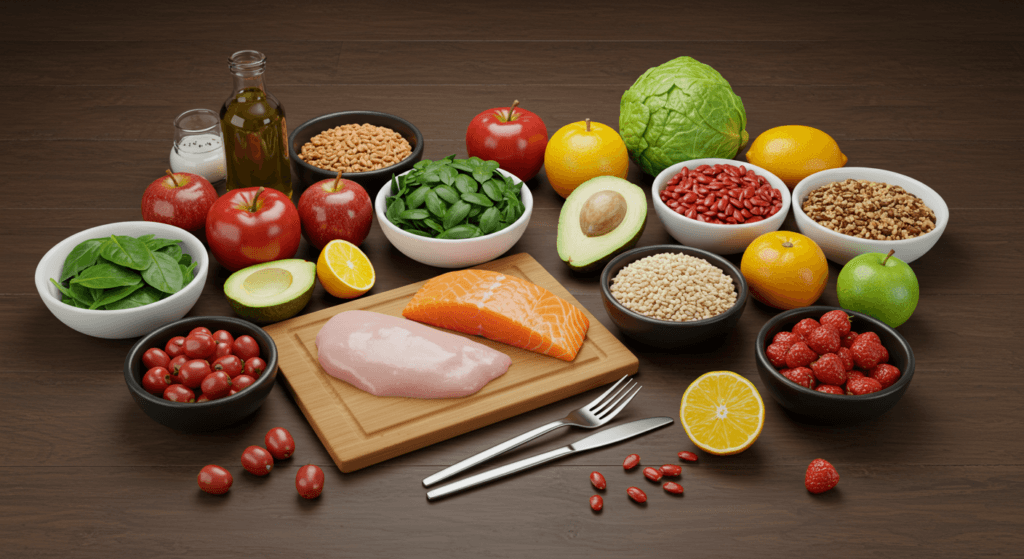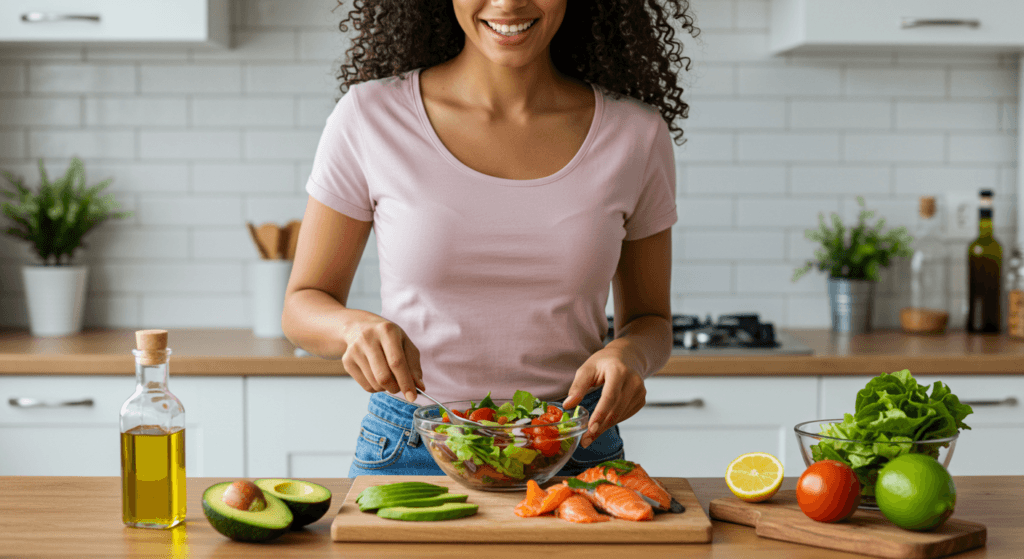
Pregnancy is one of the most exciting and transformative times in a woman’s life, but it also comes with a lot of questions—especially about nutrition. What should you eat to support your baby’s development? Are there foods you should avoid? Let’s break it all down in this guide to nutrition during pregnancy.
Why Proper Nutrition is Essential During Pregnancy
Your baby’s growth and development depend on the nutrients you consume. From brain formation to bone health, every stage of fetal development relies on vitamins, minerals, and balanced nutrition.
Nutritional Changes That Are Needed During Pregnancy
During pregnancy, your body undergoes significant changes that require adjustments in your diet. You may need to increase your calorie intake, but more importantly, focus on nutrient-dense foods. Key changes include:
- Higher iron intake to support increased blood volume
- More calcium for fetal bone development
- Increased folic acid to prevent neural tube defects
- Adequate protein for tissue growth
Most Important Nutritional Needs During Pregnancy
Here are the essential nutrients you need and where to find them:
| Nutrient | Benefits | Best Food Sources |
|---|---|---|
| Folic Acid | Prevents neural tube defects | Leafy greens, citrus fruits, fortified cereals |
| Iron | Supports oxygen transport | Lean meats, lentils, spinach |
| Calcium | Strengthens bones and teeth | Dairy products, almonds, tofu |
| Protein | Essential for fetal tissue growth | Eggs, poultry, beans |
| Omega-3 Fatty Acids | Supports brain development | Salmon, walnuts, flaxseeds |
If you’re on a mobile, you might have to swipe left.
Fun Fact: A fistful of spinach is a double win for pregnancy – packed with iron to keep your energy up and folic acid to help baby’s spine develop strong. Popeye was onto something!
Best Foods to Eat During Pregnancy
Eating a nutrient-dense diet ensures both you and your baby get what you need. Here are some top pregnancy superfoods:
1. Leafy Greens
These are packed with folic acid, iron, and fiber, essential for reducing the risk of birth defects and preventing constipation.
2. Eggs
A powerhouse of protein and choline, eggs support brain development in your baby.
3. Berries
Full of antioxidants and vitamin C, they boost immunity and promote skin health.
4. Greek Yogurt
Rich in probiotics and calcium, Greek yogurt aids digestion and strengthens bones.
5. Salmon
One of the best sources of omega-3 fatty acids, crucial for brain and eye development.
What Fruits Should You Eat During Pregnancy?
Fruits are an excellent source of vitamins, fiber, and antioxidants. Some of the best fruits to eat while pregnant include:
- Bananas – Great for preventing leg cramps and maintaining energy levels.
- Oranges – High in vitamin C to boost immunity.
- Apples – Packed with fiber to aid digestion.
- Berries – Loaded with antioxidants for overall health.
- Avocados – Rich in folate and potassium for fetal development.
The Impact of Maternal Gut Microbiota During Pregnancy
Your gut microbiome plays a crucial role in pregnancy, influencing both maternal health and fetal development. A balanced gut microbiota helps:
- Improve digestion and nutrient absorption.
- Strengthen immune function.
- Reduce inflammation and risk of gestational diabetes.
Does Pregnancy Affect the Gut Microbiome?
Yes, pregnancy significantly alters the gut microbiome due to hormonal changes, immune system adjustments, and dietary shifts. A healthy diet with probiotics (such as yogurt and fermented foods) can help maintain gut balance.
How Does Nutrition Affect Fetal Development?
Proper nutrition during pregnancy is vital for fetal growth. Nutrients like folic acid, iron, and omega-3 fatty acids contribute to:
- Brain and nervous system formation.
- Organ development.
- Birth weight and overall health.
Nutrient Requirements During Pregnancy and Lactation
Pregnancy and breastfeeding demand an increased intake of key nutrients, including:
- Iron – Needed to prevent anemia and support fetal oxygenation.
- Vitamin D – Helps in calcium absorption and bone health.
- Zinc – Essential for cell division and immune function.
Foods to Avoid During Pregnancy
While many foods are beneficial, some can be harmful to your baby’s health. Things You Should Steer Clear Of:
- Raw or undercooked meat and seafood (Risk of bacterial infections)
- Unpasteurized dairy (Can contain listeria, which is dangerous during pregnancy)
- High-mercury fish (Shark, swordfish, and king mackerel should be avoided)
- Excess caffeine (Limit to 200mg per day, about one 12oz cup of coffee)
- Alcohol (No safe amount during pregnancy)
Pregnancy Supplements
Prenatal supplements ensure you meet your nutrient needs. Key supplements include:
- Folic acid – Prevents birth defects.
- Iron – Supports increased blood volume.
- Calcium – Strengthens bones.
- DHA (Omega-3s) – Promotes brain development.
Folic Acid During Pregnancy
Folic acid is one of the most crucial nutrients for pregnancy, helping prevent neural tube defects. A daily intake of 400 to 600 mcg is advised.
Why Water Matters Extra During Pregnancy
Nutrition during pregnancy goes beyond meals—proper hydration is just as crucial. Here’s why drinking water daily is a game-changer:
- Builds baby’s cushion (amniotic fluid)
- Flushes out toxins (bye-bye UTIs and constipation)
- Keeps swelling down (happy feet = happy mom)
- Lowers early labor chances
- Fuels your 50% extra blood supply
- Acts as a nutrient Uber for your baby
Exercise During Pregnancy
Being physically active while pregnant offers several benefits, such as:
- Reducing back pain and improving posture.
- Lowering the risk of gestational diabetes.
- Boosting mood and energy levels.
Safe exercises include walking, swimming, and prenatal yoga.
FAQ
Key Takeaways
- A well-balanced diet is crucial for a healthy pregnancy and optimal fetal development.
- Essential nutrients like folic acid, iron, and omega-3s play a vital role.
- Avoid raw seafood, high-mercury fish, and processed foods.
- Staying hydrated and consuming fiber-rich foods helps prevent common pregnancy discomforts.
- Exercise during pregnancy can improve overall health and ease delivery.
- A prenatal vitamin with key nutrients is highly recommended.
If you found this article useful, share it with a friend and subscribe to our free newsletter at the bottom of the page so that I can send you more tips on eating during pregnancy



